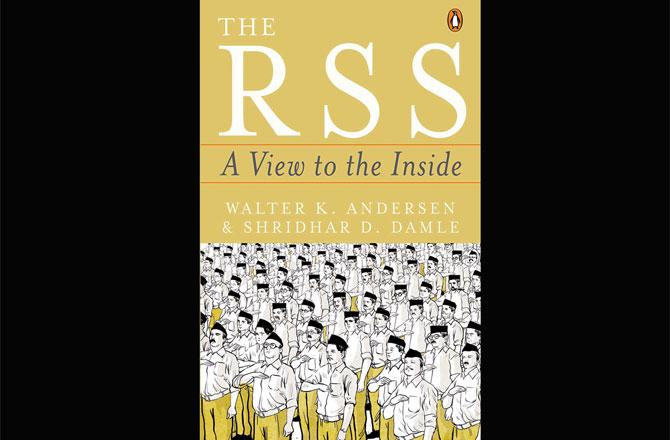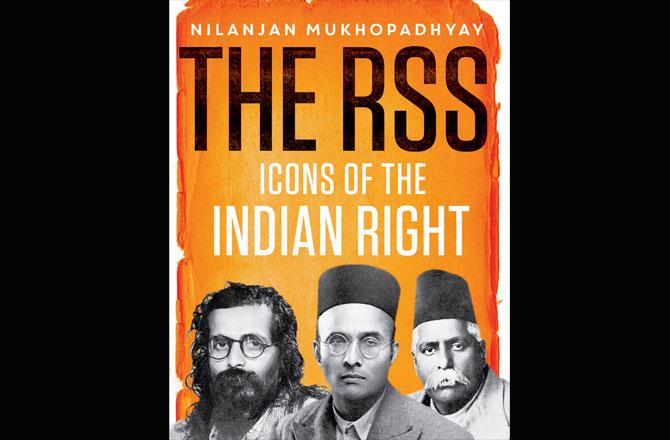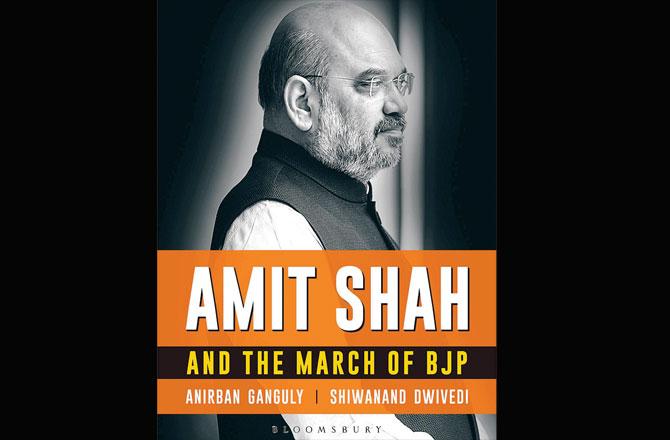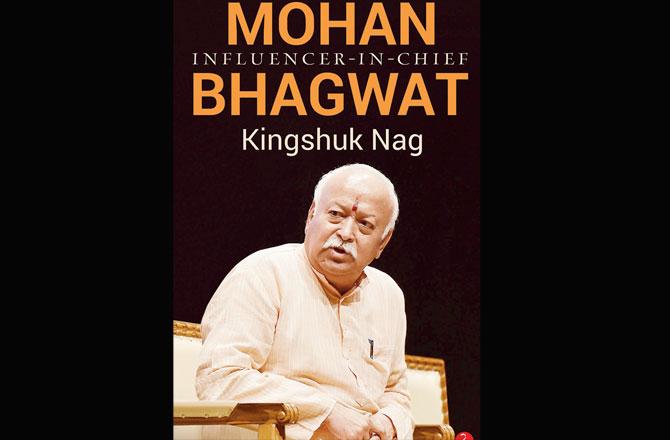From biographies of some of RSS's iconic leaders to the Sangh Parivar's influence over polity, a few books for your reading list

The extraordinary rise of the BJP is not a story that could have been scripted alone. Its story is closely linked to Rashtriya Swayamsevak Sangh, which started as a volunteer organisation, but whose right-wing values that once divided the nation, have also unified it today. It isn't surprising then that there has been a growing interest in the Sangh and the literature that it espouses. Like political journalist Nilanjan Mukhopadhyay says, "This is a rising force in Indian politics, and I think they [the RSS] are here for the long haul." The number of books being churned out since last year only proves so. We bring you our picks from some of the latest titles.
ADVERTISEMENT

RSS: A View To The Inside (Penguin Random House)
By Shridhar D Damle and Walter K Andersen
This book is perhaps, the most scholarly and nuanced account of the RSS, to have come out of India. Both the authors, who are also scholars, had access to leaders from the Sangh when nobody did, and have been researching the organisation for nearly five decades. Their interviews with MS Golwalkar, the second Sarsanghchalak of RSS, at its headquarters in Nagpur, and 200 other workers, translated into their first book, The Brotherhood in Saffron (1988). This book is an extension of that research, offering a 360-degree view of the Sangh, while also debunking the unpopular stereotype of the RSS being among other things, anti-Muslim. "What worked for RSS is that here, you got trained to work for ideology over ambition. They slowly evolutionised female participation in the Parivar. For instance, women could attend the Rashtra Sevika Samiti. They have also been open to dialogue with non-Hindus, and recently, started a new department that focuses on environment," says Damle, who has seen the Sangh transform from an "organisation for organisation's sake" to playing an influential role in reforming several institutions today. "The remarkable thing is that it has not split, when Indian organisations are notorious for that," says Andersen, adding that he won't be surprised if RSS becomes an interesting case study at universities like Harvard, which are looking at organisational cohesion.

The RSS: Icons of the Indian Right (Westland)
By Nilanjan Mukhopadhyay
Here, veteran journalist Nilanjan Mukhopadhyay chronicles the personal and political journeys of the most important men (and a woman) of the RSS — beginning with Keshav Baliram Hedgewar, the founder of the Sangh, to right-wing thinker VD Savarkar, Balasaheb Deoras, Deendayal Upadhyaya, among others. Mukhopadhyay, who has been covering Indian politics since the 1980s, said that he had an early sense of the potential of the Ram Janmabhoomi agitation. "I would be attending press conferences of the BJP when they had just two MPs. The joke was that these conferences would be attended by only three journalists, one of whom was me. But that's how closely I was tracking them. In fact, over the last 40 years, I have been trying to understand the RSS. I had always sensed that this is going to be the rising force in Indian politics, and I think they will be here for the long haul," says Mukhopadhyay, author of the bestseller Narendra Modi: The Man, The Times. The idea of the book, he says, was suggested to him by a friend when Atal Bihari Vajpayee became PM in 1998. "The bulk of the literature that exists on them [the RSS] is highly academic. My aim as a journalist was to be able to use the tools of an academic, which is very rigorous, and present it as a ring-side viewer."

Amit Shah: And The March of BJP (Bloomsbury Books, India)
By Anirban Ganguly and Shiwanand Dwivedi
It's not for nothing that Amit Shah is known as the Chanakya of modern Indian politics. From being the right-hand man to PM Modi, to becoming the BJP himself, his story is revisited through this biography, which discusses his early years and how he led the saffron party to historic victories post 2014. What's interesting is that the RSS had a strong influence on Shah's ideological views as a teen — he was formerly a swayamsevak (volunteer) and later, led its student's wing, the Akhil Bharatiya Vidyarthi Parishad. The book, however, tends to be laudatory and refrains from being very critical. Nonetheless, Shah's political career, like Modi's, is worth training the lens on — he started by sticking posters on the wall as a booth worker and rose up to become the youngest national president of the BJP. "At a time when a number of parties in India are facing an existential crisis, have displayed an unclear or confused ideological direction, are shrinking organisationally or have been reduced to family conglomerates, the BJP has continued to expand and grow. Amit Shah's vision and drive have played a key role in ensuring that," says Ganguly, who co-authored the book.

Mohan Bhagwat: Influencer-in-Chief (Rupa Publications)
By Kingshuk Nag
While the title of the cover might make you think that this book is only about Mohan Bhagwat, the chief of the RSS, he is just one element of political journalist Kingshuk Nag's narrative. This non-fiction also looks at how the Sangh moulded and influenced the Indian mindset. Having said that, Nag says that telling Bhagwat's story was important, too, as he played an important role in creating BJP's poster boy: Modi. "In 2004 and 2009, when BJP lost, Bhagwat, who is a second-generation RSS man, decided to take charge, and took a gamble with Modi, sidelining LK Advani and company. Modi then, was not even a contender for the PM's seat. In fact, Bhagwat's first choice was Nitin Gadkari, who later became party president. Yes, it's true that Modi powered himself to become the most important person in the BJP, but it is Bhagwat who saw that spark in him and allowed so many liberties to him." The only challenge that Nag faced was piecing together information from Bhagwat's early years, because of the little information available on him.
Catch up on all the latest Mumbai news, crime news, current affairs, and also a complete guide on Mumbai from food to things to do and events across the city here. Also download the new mid-day Android and iOS apps to get latest updates
 Subscribe today by clicking the link and stay updated with the latest news!" Click here!
Subscribe today by clicking the link and stay updated with the latest news!" Click here!






